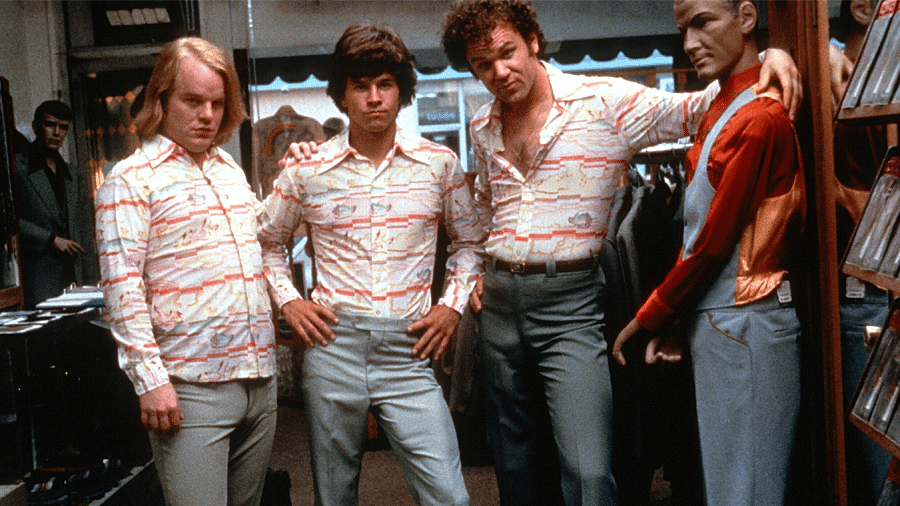
The Broad Canvas
“You don’t know what I can do, what I’m gonna do, or what I’m gonna be! I’m good! I have good things that you don’t know about! I’m gonna be something! I am! And don’t f*#@ing tell me I’m not!”
A very young Mark Wahlberg blurts out these lines to his mother when he leaves home. It not only speaks of the determination of the protagonist but sets the tone for Boogie Nights. More poignantly, it reveals the canvas of Paul Thomas Anderson’s existential artistry: he likes to back characters who are down on their luck but have the pluck to beef it out in the big bad world.
The Setting
Set in the late seventies in the twilight of the porn-film industry (as opposed to porn videos) this is an early work of Anderson’s that hits home with audiences and critics alike. It’s about the sexual counterculture that besieges Hollywood and America in the seventies, and the manipulative forces that emerge to transform middle-class drudgery into attainable hedonism.
The Story
Eddie Adams (Mark Wahlberg) a dishwasher in a Hollywood nightclub is fortuitously discovered by a pornographer, Jack Horner (Burt Reynolds). Jack has a coterie of porn stars who feed off his enterprise, but Eddie, renamed Dirk Diggler, becomes the main attraction.
Burt Reynolds plays a poor man’s Hugh Hefner with a detached sensibility towards brandished sex. He lives with Amber Waves (Julianne Moore), a former housewife and porn star, but is more interested in achieving an artistic high for this derided film genre. Amber, who is a cocaine addict, pines for her child (who is with her ex-husband), and slowly becomes a surrogate parent to Eddie, who is somewhat lost in the catapult of his own success.
Don Cheadle, William H. Macy and Luiz Guzman play key characters to capture Hollywood second-stringers of the time. Heather Graham’s, Rollergirl act, even having sex with skates on, is perhaps intended to deliberately titilate, remind us of the elusiveness of conquest, and capture the infantile fetishism of the sexual act.
Final Note
This film is based on a short film made by Anderson (written and directed) in 1988 called the The Dirk Diggler Story. The character is based on real life porn-star, John Holmes.




